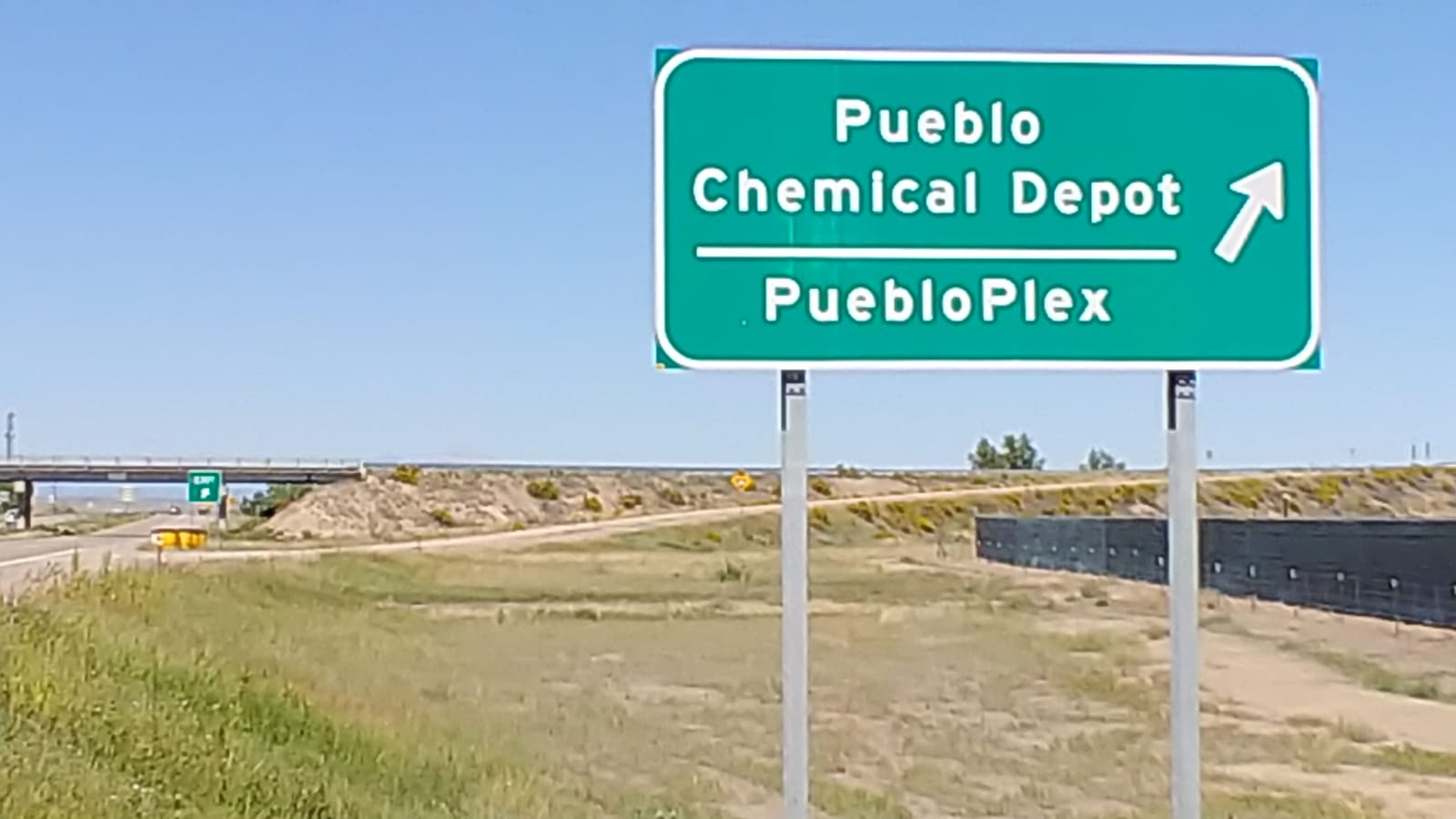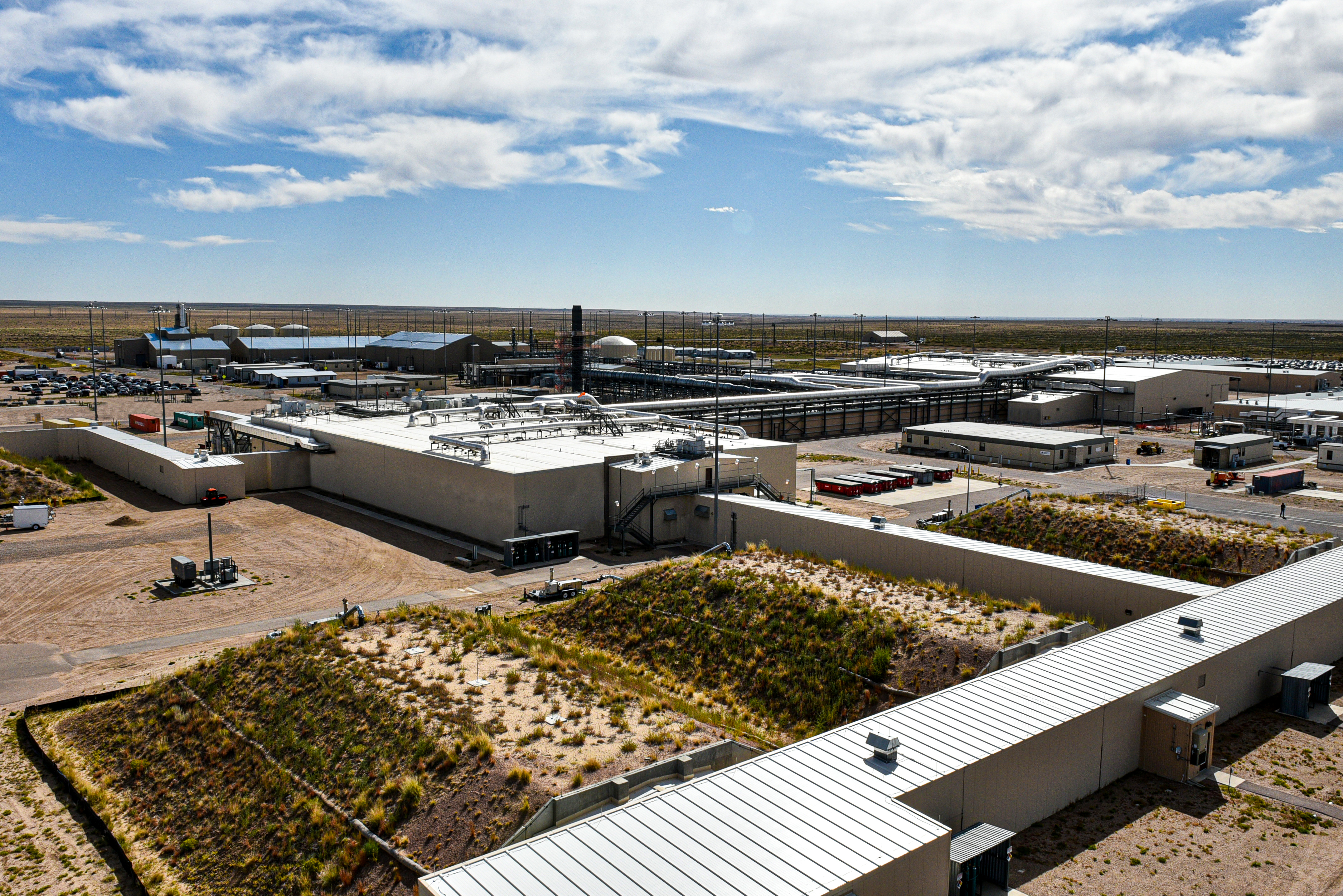Pueblo Chemical Depot on:
[Wikipedia]
[Google]
[Amazon]
 The Pueblo Chemical Depot is a
The Pueblo Chemical Depot is a  Sulfur agent is destroyed through neutralization and biotreatment. Energetic components are first removed through robotics and disposed. The weapon body is then robotically accessed to wash out the sulfur agent using water at a high pressure. The sulfur agent is neutralized with caustic solution and hot water producing a byproduct of hydrolysate. Biotreatement occurs when the hydrolysate is further broken down with microbes, producing biosludge and water. Biosludge is filtered and sent to a disposal facility. Metal weapon parts are further decontaminated at high heat then recycled The Army's Explosive Destruction System (EDS) was used for problematic munitions that cannot be destroyed through neutralization and biotreatment until December 2018. In 2018, the decision was made to replace the EDS with three Static Detonation Chamber units which will be operational in late 2020. Problematic munitions are those that have leaked or are in poor physical condition making it difficult for automated equipment processing.
A specialized facility named the PCAPP Training Facility is located at the Pueblo Memorial Airport Industrial Park and offers training courses and simulations for employees. Training are designed to ensure the safety of the employees and the surrounding environment. Employees are trained to operate the equipment and use Demilitarization Protective Ensemble or DPE. The DPE is an encapsulated air-supplied chemical protective suit. Samples are taken at multiple stages and analyzed for any leakage of the chemical agent.
The plant will operate until all the chemical weapons have been destroyed. Closure activities (shut-down, dismantling, and restoration of site) are slated to be wrapped up by 2023. This is far beyond the April 2012 deadline set by the
Sulfur agent is destroyed through neutralization and biotreatment. Energetic components are first removed through robotics and disposed. The weapon body is then robotically accessed to wash out the sulfur agent using water at a high pressure. The sulfur agent is neutralized with caustic solution and hot water producing a byproduct of hydrolysate. Biotreatement occurs when the hydrolysate is further broken down with microbes, producing biosludge and water. Biosludge is filtered and sent to a disposal facility. Metal weapon parts are further decontaminated at high heat then recycled The Army's Explosive Destruction System (EDS) was used for problematic munitions that cannot be destroyed through neutralization and biotreatment until December 2018. In 2018, the decision was made to replace the EDS with three Static Detonation Chamber units which will be operational in late 2020. Problematic munitions are those that have leaked or are in poor physical condition making it difficult for automated equipment processing.
A specialized facility named the PCAPP Training Facility is located at the Pueblo Memorial Airport Industrial Park and offers training courses and simulations for employees. Training are designed to ensure the safety of the employees and the surrounding environment. Employees are trained to operate the equipment and use Demilitarization Protective Ensemble or DPE. The DPE is an encapsulated air-supplied chemical protective suit. Samples are taken at multiple stages and analyzed for any leakage of the chemical agent.
The plant will operate until all the chemical weapons have been destroyed. Closure activities (shut-down, dismantling, and restoration of site) are slated to be wrapped up by 2023. This is far beyond the April 2012 deadline set by the
ACWA Website
{{coord, 38, 16, 26, N, 104, 20, 34, W, display=title, type:landmark_region:US-CO United States chemical weapons depots Buildings and structures in Pueblo County, Colorado Military installations in Colorado Chemical weapons destruction facilities
 The Pueblo Chemical Depot is a
The Pueblo Chemical Depot is a chemical weapon
A chemical weapon (CW) is a specialized munition that uses chemicals formulated to inflict death or harm on humans. According to the Organisation for the Prohibition of Chemical Weapons (OPCW), this can be any chemical compound intended as a ...
s storage site located in Pueblo County, Colorado
Pueblo County ( or ) is a county located in the U.S. state of Colorado. As of the 2020 census, the population was 168,162. The county seat is Pueblo. The county was named for the historic city of Pueblo which took its name from the Spanish lan ...
, United States. The Pueblo Chemical Depot is one of the last two sites in the United States with chemical munitions and chemical material. The Pueblo Chemical Agent Destruction Pilot Plant (PCAPP) which is under the Program Executive Office, Assembled Chemical Weapons Alternatives
The Program Executive Office, Assembled Chemical Weapons Alternatives (PEO ACWA) is responsible for the safe and environmentally sound destruction of chemical weapons stockpiles stored at the Blue Grass Army Depot, Kentucky and the U.S. Army Puebl ...
(PEO ACWA) program is currently destroying its stockpile of 155mm and 105mm artillery shells and 4.2-inch mortars, all of which contain a form of the chemical agent mustard gas.
The depot houses 2,613 tons (2,369 metric ton
The tonne ( or ; symbol: t) is a unit of mass equal to 1000 kilograms. It is a non-SI unit accepted for use with SI. It is also referred to as a metric ton to distinguish it from the non-metric units of the short ton (United States c ...
s) of mustard agent
Mustard gas or sulfur mustard is a chemical compound belonging to a family of cytotoxic and blister agents known as mustard agents. The name ''mustard gas'' is technically incorrect: the substance, when dispersed, is often not actually a gas, ...
in approximately 780,000 munitions, equivalent to about seven percent of the original chemical material stockpile of the United States. Destruction operations began at the Pueblo Chemical Agent-Destruction Pilot Plant The Pueblo Chemical Agent-Destruction Pilot Plant (PCAPP) is a chemical weapons destruction facility built to destroy the chemical weapons stockpile formerly stored at the U.S. Army Pueblo Chemical Depot (PCD) in southeastern Colorado. The stockpil ...
in spring 2015 with full-scale operations beginning later in 2016. Destruction of all munitions is expected to be complete by Dec. 31, 2023.
 Sulfur agent is destroyed through neutralization and biotreatment. Energetic components are first removed through robotics and disposed. The weapon body is then robotically accessed to wash out the sulfur agent using water at a high pressure. The sulfur agent is neutralized with caustic solution and hot water producing a byproduct of hydrolysate. Biotreatement occurs when the hydrolysate is further broken down with microbes, producing biosludge and water. Biosludge is filtered and sent to a disposal facility. Metal weapon parts are further decontaminated at high heat then recycled The Army's Explosive Destruction System (EDS) was used for problematic munitions that cannot be destroyed through neutralization and biotreatment until December 2018. In 2018, the decision was made to replace the EDS with three Static Detonation Chamber units which will be operational in late 2020. Problematic munitions are those that have leaked or are in poor physical condition making it difficult for automated equipment processing.
A specialized facility named the PCAPP Training Facility is located at the Pueblo Memorial Airport Industrial Park and offers training courses and simulations for employees. Training are designed to ensure the safety of the employees and the surrounding environment. Employees are trained to operate the equipment and use Demilitarization Protective Ensemble or DPE. The DPE is an encapsulated air-supplied chemical protective suit. Samples are taken at multiple stages and analyzed for any leakage of the chemical agent.
The plant will operate until all the chemical weapons have been destroyed. Closure activities (shut-down, dismantling, and restoration of site) are slated to be wrapped up by 2023. This is far beyond the April 2012 deadline set by the
Sulfur agent is destroyed through neutralization and biotreatment. Energetic components are first removed through robotics and disposed. The weapon body is then robotically accessed to wash out the sulfur agent using water at a high pressure. The sulfur agent is neutralized with caustic solution and hot water producing a byproduct of hydrolysate. Biotreatement occurs when the hydrolysate is further broken down with microbes, producing biosludge and water. Biosludge is filtered and sent to a disposal facility. Metal weapon parts are further decontaminated at high heat then recycled The Army's Explosive Destruction System (EDS) was used for problematic munitions that cannot be destroyed through neutralization and biotreatment until December 2018. In 2018, the decision was made to replace the EDS with three Static Detonation Chamber units which will be operational in late 2020. Problematic munitions are those that have leaked or are in poor physical condition making it difficult for automated equipment processing.
A specialized facility named the PCAPP Training Facility is located at the Pueblo Memorial Airport Industrial Park and offers training courses and simulations for employees. Training are designed to ensure the safety of the employees and the surrounding environment. Employees are trained to operate the equipment and use Demilitarization Protective Ensemble or DPE. The DPE is an encapsulated air-supplied chemical protective suit. Samples are taken at multiple stages and analyzed for any leakage of the chemical agent.
The plant will operate until all the chemical weapons have been destroyed. Closure activities (shut-down, dismantling, and restoration of site) are slated to be wrapped up by 2023. This is far beyond the April 2012 deadline set by the Chemical Weapons Convention
The Chemical Weapons Convention (CWC), officially the Convention on the Prohibition of the Development, Production, Stockpiling and Use of Chemical Weapons and on their Destruction, is an arms control treaty administered by the Organisation for ...
. PuebloPlex will head the redevelopment of Pueblo Chemical Depot.
Once the mustard agent has been treated and environmental restoration is complete, the depot will be transferred to the community with possibilities of solar farming to contribute energy to the military complex in Colorado Springs, Fort Carson, Peterson and Schriever Air Force bases.
See also
* Pueblo Depot Activity *Pueblo Chemical Agent-Destruction Pilot Plant The Pueblo Chemical Agent-Destruction Pilot Plant (PCAPP) is a chemical weapons destruction facility built to destroy the chemical weapons stockpile formerly stored at the U.S. Army Pueblo Chemical Depot (PCD) in southeastern Colorado. The stockpil ...
*United States chemical weapons program
The United States chemical weapons program began in 1917 during World War I with the creation of the U.S. Army's Gas Service Section and ended 73 years later in 1990 with the country's practical adoption of the Chemical Weapons Convention (signed ...
References
External links
ACWA Website
{{coord, 38, 16, 26, N, 104, 20, 34, W, display=title, type:landmark_region:US-CO United States chemical weapons depots Buildings and structures in Pueblo County, Colorado Military installations in Colorado Chemical weapons destruction facilities